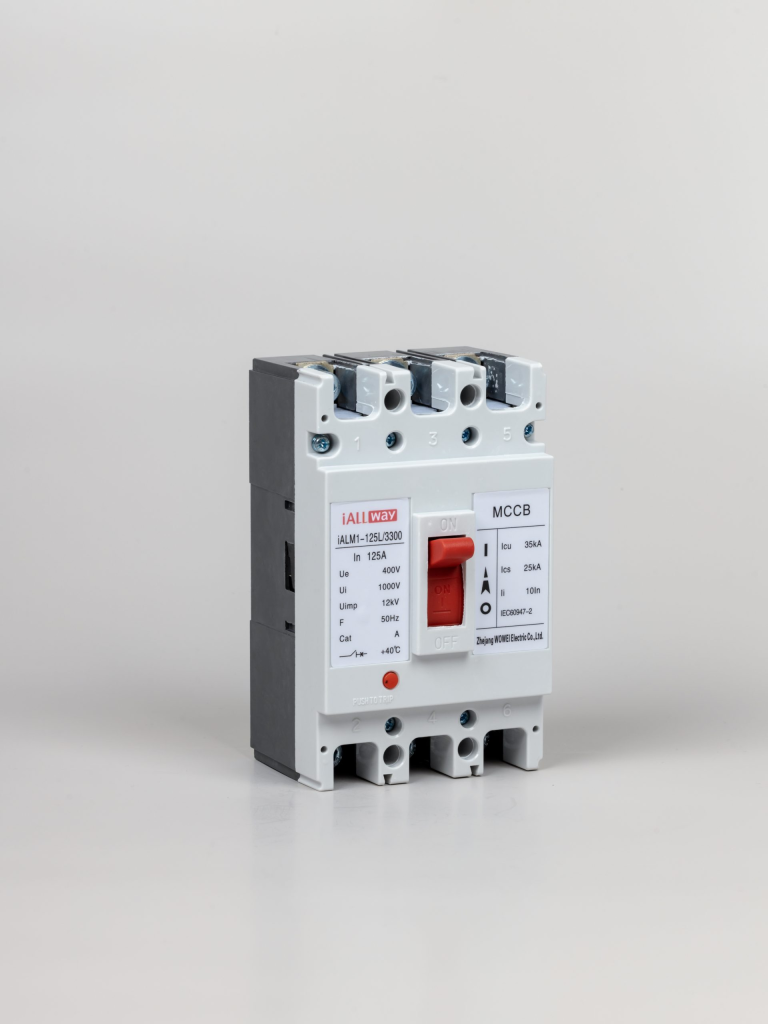
MCCBs or Molded Case Circuit Breakers are vital in places where electricity is used—and that’s just about anywhere: residential, industrial, and commercial settings among others.
Circuit breakers ensure electrical systems in these places are efficient and properly protected. If you don’t have an MMCB or if you’re not properly maintaining your MCCB, you risk damaging your equipment, the safety of your personnel, and the reliability of your electrical system.
But how do you maintain an MCCB circuit breaker? Here’s a step-by-step guide you can follow:
Always begin by ensuring your safety. Disconnect the power supply to the MCCB and lock out the circuit to prevent accidental energization.
Inspect the MCCB for any signs of physical damage, overheating, or loose connections. Check for any foreign objects inside the MCCB.
Use a soft brush or compressed air to clean dust and debris from the MCCB electrical components. Don’t use any abrasive materials that could damage the internal components.
Check for loose connections on the line and load terminals. Tighten any loose screws or bolts to ensure proper electrical contact.
Inspect the insulation for signs of wear, cracks, or damage. Replace any damaged insulation right away to prevent electrical faults.
Operate the MCCB manually to ensure smooth mechanical operation. Verify that the trip mechanism engages and disengages correctly.
If your MCCB has an adjustable trip unit, test its functionality. Use a calibrated test kit to verify that the MCCB trips at the specified current levels.
Arc chutes are critical for extinguishing the arc during a fault. Check for any damage or wear. Replace arc chutes if they show signs of deterioration.
Apply a small amount of appropriate lubricant to moving parts, such as hinges and levers, to ensure smooth operation.
If your MCCB has a thermal-magnetic trip unit, verify that it operates within its specified calibration. Recalibrate if necessary using manufacturer-recommended procedures.
Ensure all labels, including ratings and operational instructions, are clear and legible. Replace any faded or damaged labels.
Keep a detailed record of all maintenance activities, including dates, findings, and actions taken. This documentation is crucial for future reference and compliance.
Use infrared thermography to identify any hotspots, which may indicate loose connections or other potential issues.
Periodically perform insulation resistance testing using a megger to identify insulation breakdown or degradation.
Always follow the manufacturer’s guidelines and recommendations for maintenance. They provide instructions for your specific MCCB model.
Regular maintenance is key to ensuring the reliability and longevity of MCCBs. Not only that, it also prevents downtime, ensures efficient energy consumption, and detects problems early before they result in major equipment failure.
Using quality MCCB right from the start is another proactive step you can take to make your equipment last longer. iAllway provides premium yet affordable MCCB circuit breakers so you can keep your investment and personnel safe.
Contact us today for a quote.

Can you be more specific about the content of your article? After reading it, I still have some doubts. Hope you can help me.
Thanks for sharing. I read many of your blog posts, cool, your blog is very good.
Can you be more specific about the content of your article? After reading it, I still have some doubts. Hope you can help me.
I don't think the title of your article matches the content lol. Just kidding, mainly because I had some doubts after reading the article.
Can you be more specific about the content of your article? After reading it, I still have some doubts. Hope you can help me.
Can you be more specific about the content of your article? After reading it, I still have some doubts. Hope you can help me.
I don't think the title of your article matches the content lol. Just kidding, mainly because I had some doubts after reading the article.
Your article helped me a lot, is there any more related content? Thanks!
Thank you for your sharing. I am worried that I lack creative ideas. It is your article that makes me full of hope. Thank you. But, I have a question, can you help me?
I don't think the title of your article matches the content lol. Just kidding, mainly because I had some doubts after reading the article.
Thank you for your sharing. I am worried that I lack creative ideas. It is your article that makes me full of hope. Thank you. But, I have a question, can you help me?
I don't think the title of your article matches the content lol. Just kidding, mainly because I had some doubts after reading the article.
Can you be more specific about the content of your article? After reading it, I still have some doubts. Hope you can help me.
Muchas gracias. ?Como puedo iniciar sesion?
A step-by-step guide to MCCB maintenance ensures safety and reliability by outlining proper inspection, cleaning, and testing procedures. Regular maintenance of Molded Case Circuit Breakers (MCCB) helps prevent electrical failures, prolongs equipment life, and ensures compliance with safety standards. Essential for maintaining electrical system efficiency and safety.